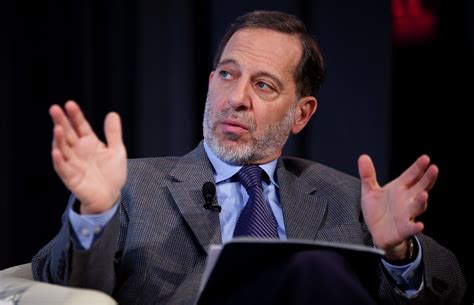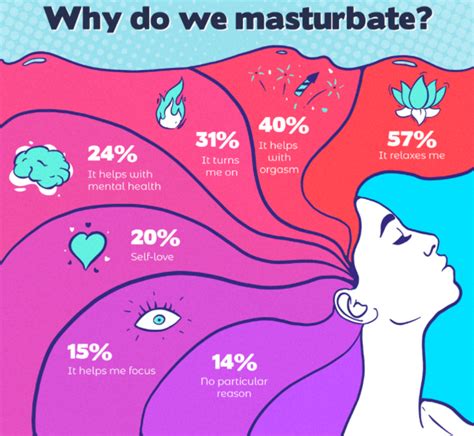Things To Include On A Resume
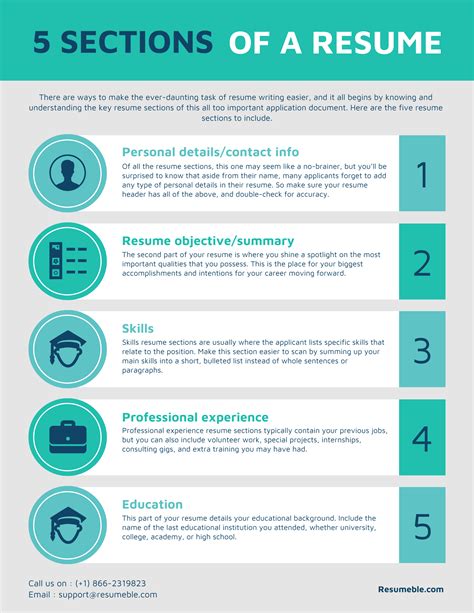
A well-crafted resume is an essential tool in your professional journey, serving as a gateway to job opportunities and a means to showcase your skills and experiences. It is a concise document that highlights your qualifications and potential value to an employer. In today's competitive job market, creating an effective resume is crucial for standing out and making a positive first impression. This article will delve into the key elements and strategies to create a compelling resume, offering practical advice and examples to help you maximize your chances of landing that dream job.
Understanding the Purpose of a Resume
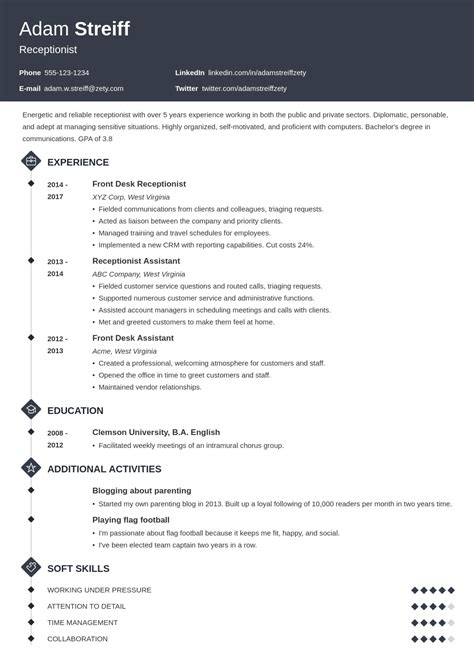
At its core, a resume serves as a professional snapshot, providing a concise overview of your career history, skills, and accomplishments. It acts as a marketing tool, presenting your unique value proposition to potential employers. The primary goal is to capture their attention and convince them that you are the ideal candidate for the role.
An effective resume should showcase your strengths, demonstrate your suitability for the job, and highlight your potential for growth and contribution to the organization. It is a dynamic document that evolves with your career, reflecting your evolving skills and experiences.
Essential Components of a Resume
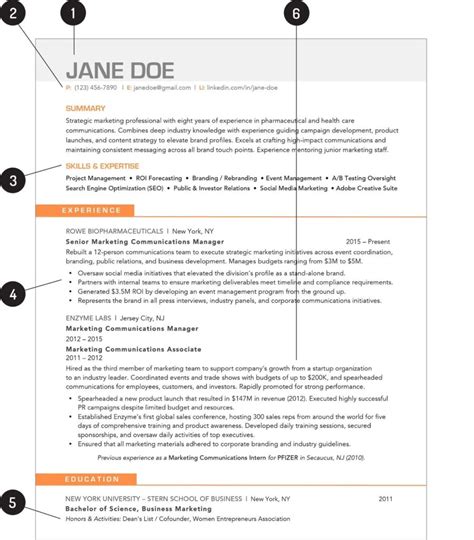
Building a comprehensive resume involves careful selection and organization of information. Here are the key components that should be included:
Contact Information
Begin your resume with your full name, clearly displayed at the top. Provide accurate and up-to-date contact details, including your email address, phone number, and professional social media profiles (e.g., LinkedIn). Ensure these details are easily accessible to recruiters and hiring managers.
Professional Summary or Objective
A professional summary is a concise statement that highlights your key skills, experiences, and career goals. It should be tailored to the specific job you are applying for, emphasizing how your unique qualifications align with the employer’s needs. Alternatively, if you are seeking a career change or are an entry-level candidate, consider including a career objective statement that outlines your aspirations and the value you aim to bring to the role.
Work Experience
Your work experience section is a crucial part of your resume. It should showcase your professional history, including your previous roles, responsibilities, and achievements. Start with your most recent position and work backward. Highlight your accomplishments using action verbs and quantify your achievements whenever possible. For example, “Increased sales revenue by 20% through effective marketing strategies” provides a stronger impact than a generic statement.
Education
The education section of your resume should include details about your academic qualifications, such as your degree, major, and institution. If you have relevant certifications or professional training, be sure to list them here as well. When describing your education, focus on the skills and knowledge gained that are applicable to the job you are seeking.
Skills
Identify and highlight the skills that are most relevant to the job you are applying for. These can include technical skills, such as proficiency in specific software or programming languages, as well as soft skills like communication, leadership, or problem-solving abilities. Provide concrete examples to demonstrate your skill set, such as “Proficient in Microsoft Office Suite” or “Experienced in Agile project management methodologies.”
Additional Sections
Depending on your industry and career stage, you may consider including additional sections in your resume. These could include:
- Awards and Honors: Recognitions, awards, or achievements you have received.
- Certifications: Professional certifications or licenses relevant to your field.
- Publications: Published works, research papers, or articles authored by you.
- Projects: Significant projects you have worked on, highlighting your contributions and outcomes.
- Volunteer Work: Involvement in volunteer activities or community initiatives.
Tips for Crafting an Effective Resume
To ensure your resume stands out and captures the attention of recruiters, consider the following tips:
Tailor Your Resume
Customize your resume for each job application. Research the company and the specific role, and align your qualifications and experiences with their needs. Use similar keywords and phrases from the job description to showcase how you are a perfect fit.
Use a Clean and Professional Format
Choose a simple and easy-to-read resume format. Use a clean font (e.g., Arial, Calibri, or Times New Roman) and a consistent style throughout. Ensure your resume is well-organized, with clear section headings and appropriate white space to enhance readability.
Quantify Your Achievements
Whenever possible, quantify your accomplishments. Numbers and percentages provide concrete evidence of your impact and make your resume more compelling. For instance, instead of saying “Increased sales,” specify “Increased sales by 15% through strategic marketing campaigns.”
Highlight Transferable Skills
If you are changing careers or have diverse work experiences, emphasize the transferable skills you have gained. Identify the skills that are relevant across industries and highlight how they can be applied to the new role you are pursuing.
Use Action Verbs
Begin your work experience descriptions with powerful action verbs. Words like “managed,” “implemented,” “developed,” or “improved” demonstrate your initiative and impact. For example, “Managed a team of 10 employees, resulting in a 25% increase in customer satisfaction.”
Proofread and Edit
Always proofread your resume for grammatical errors, typos, and formatting inconsistencies. Consider having a friend or colleague review it for a fresh perspective. A well-edited resume demonstrates attention to detail and professionalism.
Seek Professional Help
If you are unsure about your resume’s effectiveness, consider seeking professional assistance. Career counselors, resume writing services, or even online resume builders can provide valuable guidance and ensure your resume meets industry standards.
Resume Template and Example
Here’s a basic resume template you can use as a starting point:
[Your Name] [Contact Information] Professional Summary: [A brief summary of your skills, experiences, and career goals.] Work Experience: [Job Title] at [Company Name], [Employment Dates] - [Description of responsibilities and achievements] - [Quantified accomplishment] - [Additional relevant information] [Repeat for each job experience] Education: [Degree Name], [Major], [Institution], [Graduation Date] [Description of relevant coursework or projects] Skills: - [Technical Skill 1] - [Technical Skill 2] - [Soft Skill 1] - [Soft Skill 2] [Additional Sections as needed (Awards, Certifications, etc.)]
Remember, this is just a template, and you should adapt it to fit your unique experiences and qualifications. Use this as a foundation and customize it to make your resume shine.
Conclusion: Your Resume as a Powerful Tool
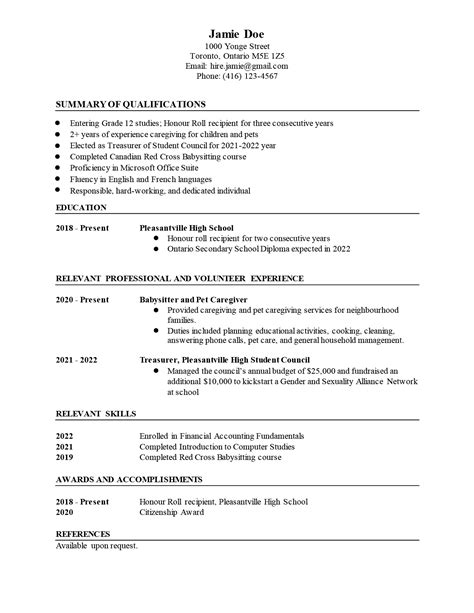
Your resume is a powerful tool that can open doors to exciting career opportunities. By understanding its purpose, including essential components, and following best practices, you can create a compelling resume that showcases your unique value. Remember to tailor your resume, highlight your achievements, and present yourself professionally. With a well-crafted resume, you’ll be one step closer to achieving your career goals.
How long should my resume be?
+The ideal length of a resume typically ranges from one to two pages. However, it’s important to remember that quality takes precedence over quantity. Focus on including relevant information that showcases your qualifications and experiences. If you have extensive work history or achievements, consider a longer resume, but ensure it remains concise and easy to navigate.
Should I include personal interests or hobbies on my resume?
+Incorporating personal interests or hobbies on your resume can add a unique touch and provide insight into your personality. However, it’s essential to be selective. Include hobbies or interests that are relevant to the job or that demonstrate valuable skills. For instance, if you’re applying for a creative role, mentioning your passion for photography or graphic design could be beneficial.
How often should I update my resume?
+It’s a good practice to review and update your resume regularly, ideally every six months or whenever you gain new skills, experiences, or accomplishments. This ensures your resume remains current and reflects your most recent professional growth. Regular updates also make it easier to tailor your resume for specific job applications.
